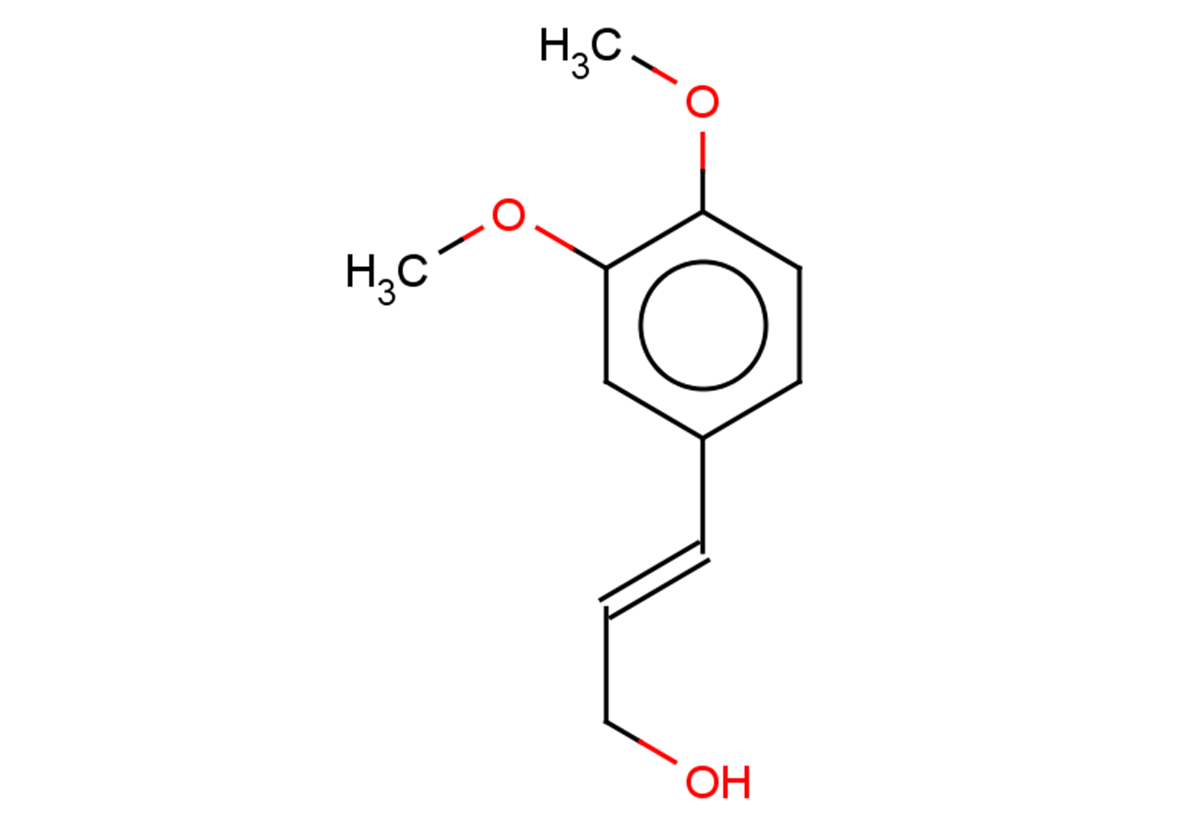
3,4-Dimethoxycinnamyl alcohol
CAS No. 40918-90-9
3,4-Dimethoxycinnamyl alcohol( (E)-3-(3,4-dimethoxyphenyl)prop-2-en-1-ol )
Catalog No. M24371 CAS No. 40918-90-9
3,4-Dimethoxycinnamyl alcohol shows significant antimicrobial and cytotoxic activities.
Purity : >98% (HPLC)
 COA
COA
 Datasheet
Datasheet
 HNMR
HNMR
 HPLC
HPLC
 MSDS
MSDS
 Handing Instructions
Handing Instructions
| Size | Price / USD | Stock | Quantity |
| 5MG | 324 | In Stock |


|
| 10MG | 482 | In Stock |


|
| 25MG | 779 | In Stock |


|
| 50MG | 1071 | In Stock |


|
| 100MG | Get Quote | In Stock |


|
| 200MG | Get Quote | In Stock |


|
| 500MG | Get Quote | In Stock |


|
| 1G | Get Quote | In Stock |


|
Biological Information
-
Product Name3,4-Dimethoxycinnamyl alcohol
-
NoteResearch use only, not for human use.
-
Brief Description3,4-Dimethoxycinnamyl alcohol shows significant antimicrobial and cytotoxic activities.
-
Description3,4-Dimethoxycinnamyl alcohol shows significant antimicrobial and cytotoxic activities.
-
In Vitro——
-
In Vivo——
-
Synonyms(E)-3-(3,4-dimethoxyphenyl)prop-2-en-1-ol
-
PathwayOthers
-
TargetOther Targets
-
RecptorOthers
-
Research Area——
-
Indication——
Chemical Information
-
CAS Number40918-90-9
-
Formula Weight194.23
-
Molecular FormulaC11H14O3
-
Purity>98% (HPLC)
-
Solubility——
-
SMILESCOc(ccc(/C=C/CO)c1)c1OC
-
Chemical Name——
Shipping & Storage Information
-
Storage(-20℃)
-
ShippingWith Ice Pack
-
Stability≥ 2 years
Reference
1.Sadik G , Islam R , Rahman M M , et al. Antimicrobial and cytotoxic constituents of Loranthus globosus[J]. Fitoterapia, 2003, 74(3):308-311.
molnova catalog



related products
-
2-Hydroxy-3,4,6-trim...
2'-Hydroxy-3',4',6'-trimethoxychalcone is a natural product for research related to life sciences.
-
Sequoiaflavone
Sequoiaflavone is a biflavone isolated from Ginkgo biloba.
-
KEEAE
KEEAE



 Cart
Cart
 sales@molnova.com
sales@molnova.com


